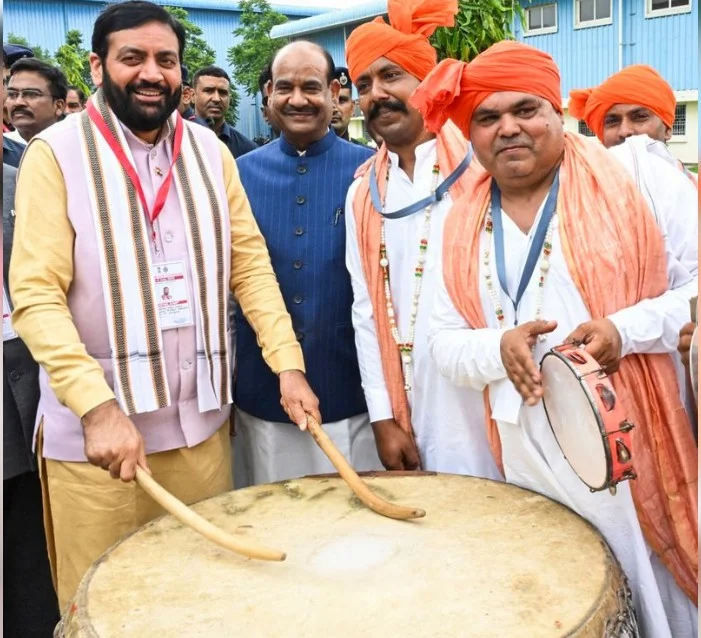MANESAR, July 5: Haryana Chief Minister Nayab Singh Saini on Friday launched the state’s Vision-2047 plan, laying out an ambitious roadmap to transform the state into a $1-trillion economy and generate 50 lakh jobs. He emphasised that urban local bodies (ULBs) would be at the heart of this transformation, acting as drivers of both democratic participation and development.
Speaking at the inaugural session of the national conference of chairpersons of urban local bodies, Saini said, “Haryana is growing by the day. Being chosen to host this national conference reflects our rising prominence. We are nurturing the grassroots of democracy while realising Prime Minister Narendra Modi’s vision of Viksit Bharat 2047.”
Calling ULBs the “first school and nursery of democracy,” Saini added, “The deeper the roots of democracy at the local level, the stronger our nation becomes.”
The CM praised Gurugram as a model of smart growth and announced plans to build five ultra-modern cities under the Panch Gram Yojana along the 180-km Kundli-Manesar-Palwal (KMP) Expressway corridor. The proposed urban centres will cater to a projected population of 75 lakh by 2050.
Haryana Vidhan Sabha Speaker Harvinder Kalyan called it a moment of pride to host such a significant event in the land of Kurukshetra, where Lord Krishna delivered the teachings of the Gita. “Urban local bodies play a pivotal role in directly responding to citizens’ needs,” he said.
Urban Local Bodies Minister Vipul Goel noted the ground-level impact of ULBs, calling them “the most sensitive units of democracy, constantly engaging with civic challenges.”
Lok Sabha Speaker Om Birla, who inaugurated the event, urged ULBs to adopt parliamentary practices such as Question Hour and Zero Hour to boost transparency and accountability. “Urban bodies must promote dialogue and reject disruption,” he said, noting that such measures had already improved productivity in the 18th Lok Sabha.
“Disruption weakens democracy. What strengthens it is patience, dialogue, and depth of discussion,” Birla added, encouraging municipalities to hold regular meetings, form standing committees, and consult openly with citizens.
The conference spotlighted best practices from leading cities.
- Indore was lauded for its citizen-driven cleanliness movement and the commitment of Safai Mitras, who begin work at dawn.
- Surat has raised ₹140 crore by selling treated sewage water to industries and aims to increase this to ₹450 crore by extending supplies to construction sites.
- Lucknow earned praise for deploying e-vehicles in waste collection, setting up high-capacity processing plants, and converting dump sites into community assets.
- Pune impressed with its biogas-powered electricity model, ward-level waste segregation, and integrated sustainability initiatives.
The daylong event fostered cross-learning, innovation, and a renewed push for ULB-led urban sustainability and democratic empowerment.

